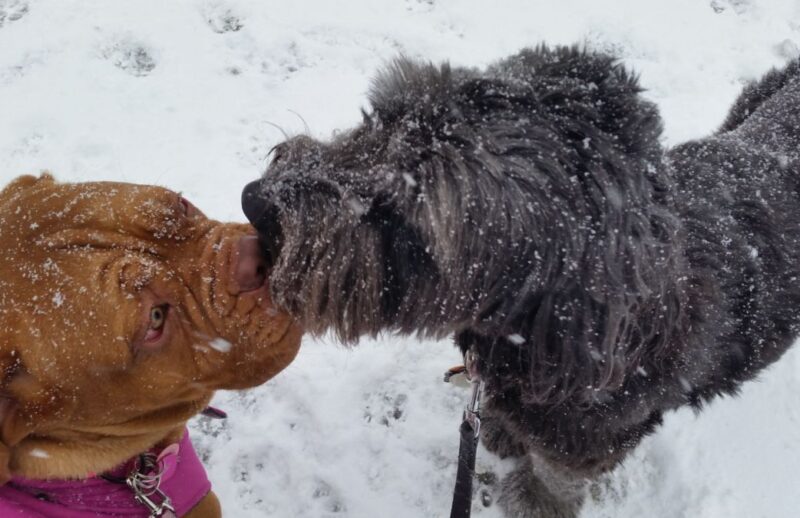For some of us, cold weather is regarded as an annoyance, for others, it’s a fun time filled with snowboarding, skiing and other winter joys; and still others will find this time of bone-chilling weather and huge piles of snow a real nightmare to endure. Whatever your point of view on winter is, one thing remains the same for all of us with pets, it’s a time when our fur babies need a little extra care. With frigid temperatures and heavy snowfall, the first few months of the year can be tough for your dog, making it easy for them to catch the winter blues. Following are some tips and ideas to keep your dog safe, healthy and happy during the cold snow weather season.
In or Out?
Does your pet spend most of the time in the backyard? You might want to keep her indoors during the freezing months, especially if you live in bitterly cold areas. I would strongly recommend getting a jacket for your puppy to keep him warm in the cold weather.
The Naked Truth!
Not all breeds of dogs have the thick coats and layers of body fat needed to tolerate freezing temperatures. If you must keep your pet outdoors, please think about this: Would a fur coat alone (even if it is faux mink) keep you warm against the elements? Chances are the answer is NO! Well, your pet’s fur coat isn’t enough protection for them during winter, either. Be a good pet owner and provide your dog with a warm, dry, and draft free shelter outside. Pay attention if your dog is shivering, as it may be a sign of hypothermia. Dogs can even suffer from frostbite if left outside too long; the tail, ears and feet are especially vulnerable.
Pawsitive Care!
It can be difficult for smaller dogs to wade through deep snow. And the road salt used to melt ice on streets and sidewalks can irritate paws and make animals sick if they swallow it. Protecting sensitive paws is more of a challenge. Some owners attempt to put booties on their dogs to help them trek through the ice and snow, but that’s easier said than done. Part of the problem is that dogs use their pads and feet to get a sense of their environment, she explained. When you cover the paws, they get disoriented. There are some special creams and balms available to protect paws from being irritated by road salt.
No More Frozen Dinners!
Because it takes more energy to stay warm when it’s cold, outdoor animals eat more during the winter. They also require fresh water to maintain their health. Please keep an eye on their food and water bowls. Ice pops might be a fun treat however your pet really doesn’t want to have to lick a frozen lump of ice to get his water or eat a meal.
Diet?
Indoor pets have different dietary needs. They conserve energy by sleeping more in the winter. Dogs and cats also exercise much less when they do go outside, so you may need to adjust the amount of food they consume.After all, no one wants an overweight pet.
Change Grooming Habits for Winter:
In the drying winter season, less is more. If possible, minimize baths during the colder months to help your dog maintain naturally occurring oils so his skin won’t dry out as much. When you do bathe him, pamper your pup by using a gentle shampoo to clean and condition your pet’s coat. Make sure your dog is completely dry before going out after a bath.
Cabin Fever?
Combat the boredom by creating indoor activities and stocking up on plenty of toys. Playing with interactive toys—or any toys for that matter—can stimulate your pet’s brain. Older dogs who are less playful can benefit from a quick massage and having their owners rotate their joints if they aren’t going out for a regular walk. Make sure that your pooches have a way to release pent up energy if they are cooped up.
Some dogs will just simply refuse to go outside when the weather is too cold. Remember your dog is more likely to do something that you yourself are willing to do. “Go outside with your dog!” It’s ok to make it quick. “It’s not as necessary for them to go out for long periods of time as soon as they are done eliminating. If the dog really doesn’t want to go outside, make it as comfortable as you can and then take them back home,”






